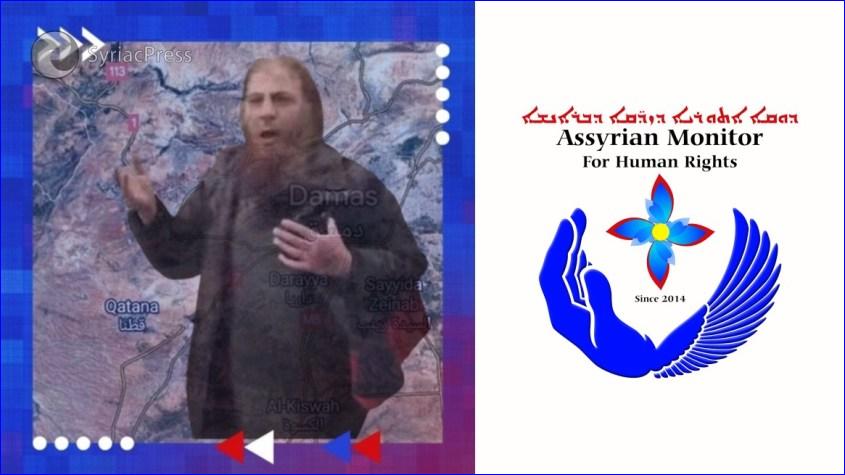 The Assyrian Monitor for Human Rights (AMHR) issued a stark warning over what it describes as an escalating pattern of intimidation aimed at Christian communities in the Syrian capital and its surrounding countryside, urging authorities to intervene before fragile social cohesion further erodes.
The Assyrian Monitor for Human Rights (AMHR) issued a stark warning over what it describes as an escalating pattern of intimidation aimed at Christian communities in the Syrian capital and its surrounding countryside, urging authorities to intervene before fragile social cohesion further erodes.
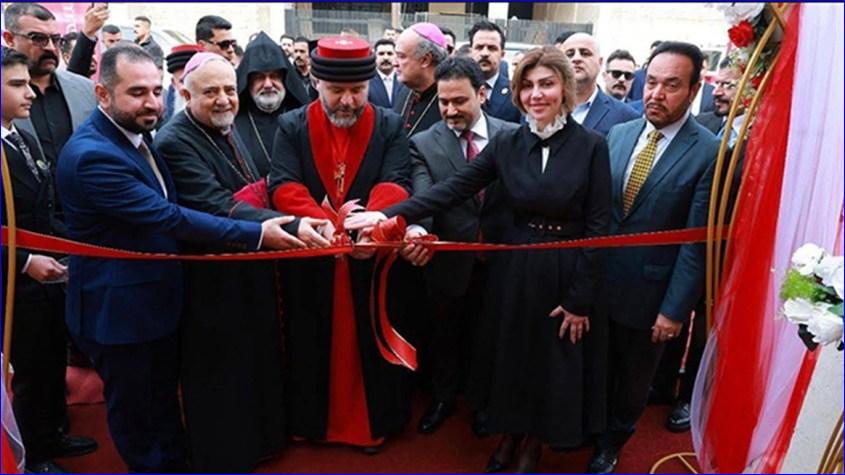 Baghdad -- The Ancient Church of the East formally inaugurated its new patriarchal headquarters in Iraq's capital on Saturday, 14 February 2026, in a ceremony that blended ecclesiastical tradition with state participation and underscored the enduring presence of one of the country's most historical Christian communities.
Baghdad -- The Ancient Church of the East formally inaugurated its new patriarchal headquarters in Iraq's capital on Saturday, 14 February 2026, in a ceremony that blended ecclesiastical tradition with state participation and underscored the enduring presence of one of the country's most historical Christian communities.
Matti Matti grew up in Ankawa, a Christian enclave outside of Erbil in Iraq's Kurdistan Region. He's witnessed the town change dramatically as Iraq's Christian population has collapsed, from 1.5 million in 2003 to fewer than 150,000 today. As many Assyrians, Chaldeans and Syriacs leave -- terms often used interchangeably -- others like Dilan Adamat have made the decision to return.
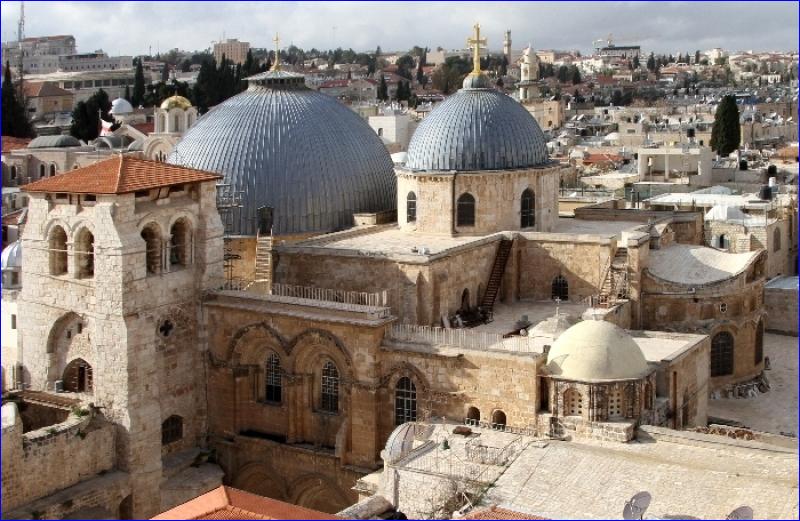 Speakers at the sixth annual International Religious Freedom Summit on Monday warned that religious freedom is rapidly deteriorating across several Middle Eastern countries, urging the United States, Western governments, and international bodies to take stronger action.
Speakers at the sixth annual International Religious Freedom Summit on Monday warned that religious freedom is rapidly deteriorating across several Middle Eastern countries, urging the United States, Western governments, and international bodies to take stronger action.
 Esslingen, Germany -- The creativity and excellence of the Assyrian people across all fields of life, artistic, athletic, and scientific, are not confined by geographic or regional boundaries, but stem from the authenticity of this people and their contributions to human civilization since ancient times.
Esslingen, Germany -- The creativity and excellence of the Assyrian people across all fields of life, artistic, athletic, and scientific, are not confined by geographic or regional boundaries, but stem from the authenticity of this people and their contributions to human civilization since ancient times.
By Ryan Foley
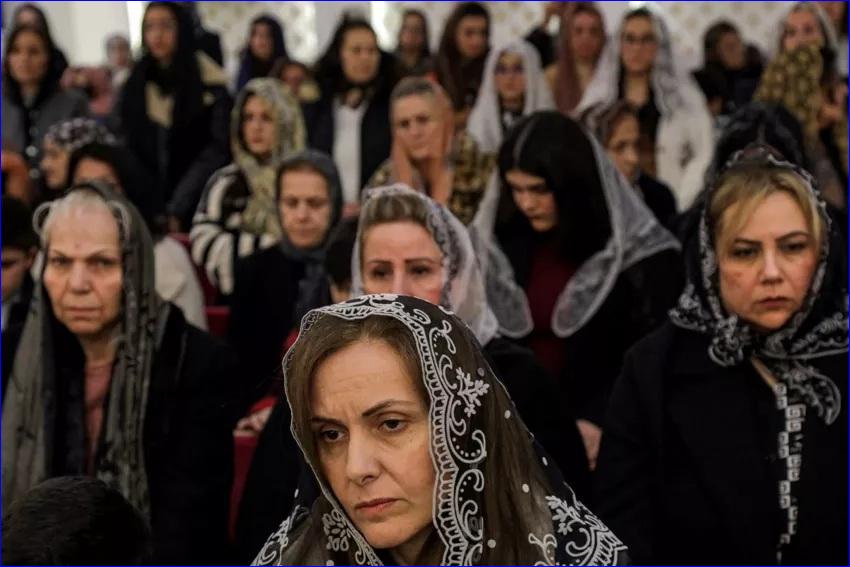 A religious freedom activist warns that the Assyrian Christian community in the Middle East "does not have a chance of survival" and offered sharp words of criticism at the sixth annual International Religious Freedom Summit, saying "the West has repeatedly failed Assyrian Christians.
A religious freedom activist warns that the Assyrian Christian community in the Middle East "does not have a chance of survival" and offered sharp words of criticism at the sixth annual International Religious Freedom Summit, saying "the West has repeatedly failed Assyrian Christians.
By Wendy Yurgo
When The Christian Post published my article, "When Christian worship is a crime: The deadliest era in modern history," it documented a reality many Christians around the world already know firsthand: worship itself has become dangerous. Believers are being targeted not for political activity or violence, but simply for gathering, praying, and living openly as followers of Christ.
By Stavros Stavridis
 In my previous piece, I described my sojourn in New York. This follow up article is about my trip to Phoenix, which also proved successful. Even before I came to the United States on November 19, 2025, I had participated in two webinars in August and September through Zoom held in Phoenix when I was in Melbourne.
In my previous piece, I described my sojourn in New York. This follow up article is about my trip to Phoenix, which also proved successful. Even before I came to the United States on November 19, 2025, I had participated in two webinars in August and September through Zoom held in Phoenix when I was in Melbourne.
By Ryan Whalen
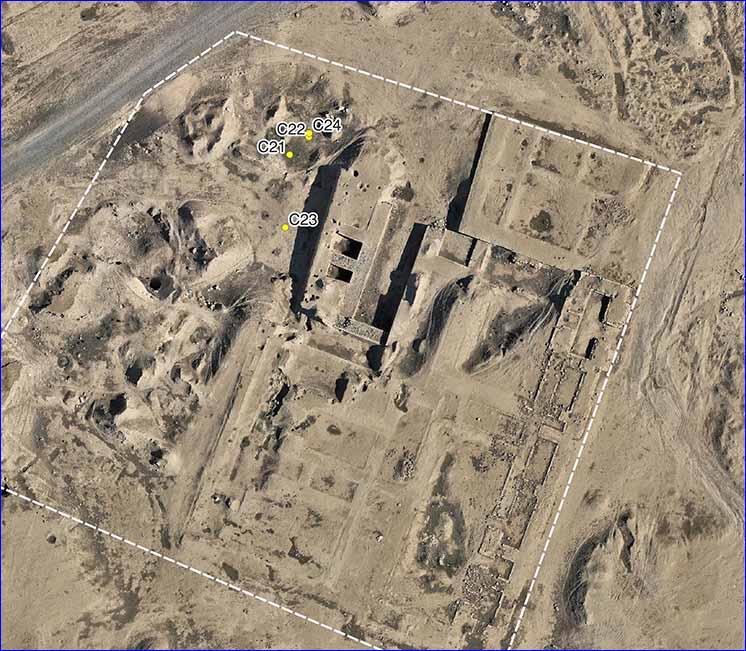 Hidden beneath an ancient temple in Assur, Iraq, archaeologists have made a discovery that holds potentially crucial evidence for the cult of Ishtar's origins in the area. The researchers behind the discovery date the temple's foundation to between 2896 BCE and 2702 BCE, saying that it provides crucial evidence for the spread of Mesopotamian ritual practice to northern Iraq and urban life at...
Hidden beneath an ancient temple in Assur, Iraq, archaeologists have made a discovery that holds potentially crucial evidence for the cult of Ishtar's origins in the area. The researchers behind the discovery date the temple's foundation to between 2896 BCE and 2702 BCE, saying that it provides crucial evidence for the spread of Mesopotamian ritual practice to northern Iraq and urban life at...
 Historian Themistocles Kritikakos offers the first comprehensive comparative study of Armenian, Greek and Assyrian Genocide recognition efforts in 21 century Australia. Published by Palgrave Macmillan as part of the Palgrave Studies in the History of Genocide series, Armenian, Greek, and Assyrian Genocide Recognition in Twenty-First-Century Australia: Memory, Identity, and Cooperation examines...
Historian Themistocles Kritikakos offers the first comprehensive comparative study of Armenian, Greek and Assyrian Genocide recognition efforts in 21 century Australia. Published by Palgrave Macmillan as part of the Palgrave Studies in the History of Genocide series, Armenian, Greek, and Assyrian Genocide Recognition in Twenty-First-Century Australia: Memory, Identity, and Cooperation examines...
By Namrood Shiba
(AINA) -- The security situation in northern Syria has reached a critical stage. What was previously described as allegations is now substantiated by multiple field reports and security assessments confirming the existence of established tunnel networks linking Syrian territory with both Iraq and Turkey.
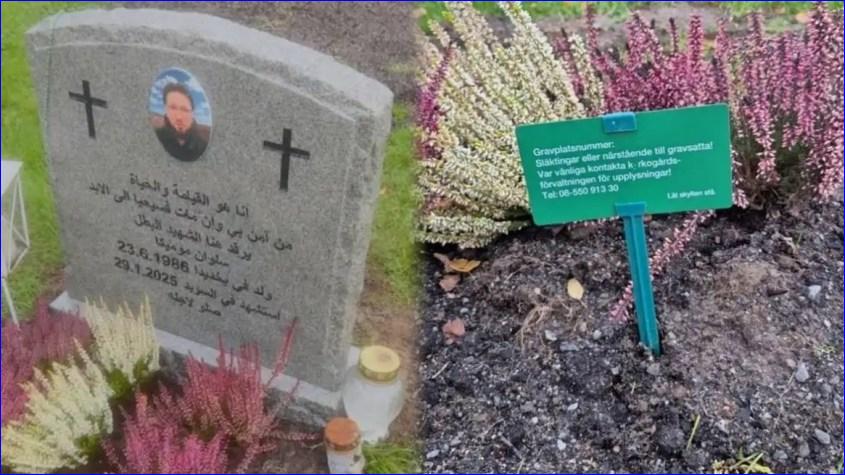 Södertälje, Sweden -- Citing concerns about vandalism and desecration, Sweden's cemetery authority has removed the headstone from the grave of Assyrian Salwan Momika, nearly a year after his killing. According to his father, Sabah Momika, the family was shocked after receiving a recent photo of their son's grave showing that the headstone had been replaced with a green sign instructing them to...
Södertälje, Sweden -- Citing concerns about vandalism and desecration, Sweden's cemetery authority has removed the headstone from the grave of Assyrian Salwan Momika, nearly a year after his killing. According to his father, Sabah Momika, the family was shocked after receiving a recent photo of their son's grave showing that the headstone had been replaced with a green sign instructing them to...
 The Assyrian Monitor for Human Rights (AMHR) issued a stark warning over what it describes as an escalating pattern of intimidation aimed at Christian communities in the Syrian capital and its surrounding countryside, urging authorities to intervene before fragile social cohesion further erodes.
The Assyrian Monitor for Human Rights (AMHR) issued a stark warning over what it describes as an escalating pattern of intimidation aimed at Christian communities in the Syrian capital and its surrounding countryside, urging authorities to intervene before fragile social cohesion further erodes.
 Baghdad -- The Ancient Church of the East formally inaugurated its new patriarchal headquarters in Iraq's capital on Saturday, 14 February 2026, in a ceremony that blended ecclesiastical tradition with state participation and underscored the enduring presence of one of the country's most historical Christian communities.
Baghdad -- The Ancient Church of the East formally inaugurated its new patriarchal headquarters in Iraq's capital on Saturday, 14 February 2026, in a ceremony that blended ecclesiastical tradition with state participation and underscored the enduring presence of one of the country's most historical Christian communities. Speakers at the sixth annual International Religious Freedom Summit on Monday warned that religious freedom is rapidly deteriorating across several Middle Eastern countries, urging the United States, Western governments, and international bodies to take stronger action.
Speakers at the sixth annual International Religious Freedom Summit on Monday warned that religious freedom is rapidly deteriorating across several Middle Eastern countries, urging the United States, Western governments, and international bodies to take stronger action. Esslingen, Germany -- The creativity and excellence of the Assyrian people across all fields of life, artistic, athletic, and scientific, are not confined by geographic or regional boundaries, but stem from the authenticity of this people and their contributions to human civilization since ancient times.
Esslingen, Germany -- The creativity and excellence of the Assyrian people across all fields of life, artistic, athletic, and scientific, are not confined by geographic or regional boundaries, but stem from the authenticity of this people and their contributions to human civilization since ancient times. A religious freedom activist warns that the Assyrian Christian community in the Middle East "does not have a chance of survival" and offered sharp words of criticism at the sixth annual International Religious Freedom Summit, saying "the West has repeatedly failed Assyrian Christians.
A religious freedom activist warns that the Assyrian Christian community in the Middle East "does not have a chance of survival" and offered sharp words of criticism at the sixth annual International Religious Freedom Summit, saying "the West has repeatedly failed Assyrian Christians. In my previous piece, I described my sojourn in New York. This follow up article is about my trip to Phoenix, which also proved successful. Even before I came to the United States on November 19, 2025, I had participated in two webinars in August and September through Zoom held in Phoenix when I was in Melbourne.
In my previous piece, I described my sojourn in New York. This follow up article is about my trip to Phoenix, which also proved successful. Even before I came to the United States on November 19, 2025, I had participated in two webinars in August and September through Zoom held in Phoenix when I was in Melbourne. Hidden beneath an ancient temple in Assur, Iraq, archaeologists have made a discovery that holds potentially crucial evidence for the cult of Ishtar's origins in the area. The researchers behind the discovery date the temple's foundation to between 2896 BCE and 2702 BCE, saying that it provides crucial evidence for the spread of Mesopotamian ritual practice to northern Iraq and urban life at...
Hidden beneath an ancient temple in Assur, Iraq, archaeologists have made a discovery that holds potentially crucial evidence for the cult of Ishtar's origins in the area. The researchers behind the discovery date the temple's foundation to between 2896 BCE and 2702 BCE, saying that it provides crucial evidence for the spread of Mesopotamian ritual practice to northern Iraq and urban life at... Historian Themistocles Kritikakos offers the first comprehensive comparative study of Armenian, Greek and Assyrian Genocide recognition efforts in 21 century Australia. Published by Palgrave Macmillan as part of the Palgrave Studies in the History of Genocide series, Armenian, Greek, and Assyrian Genocide Recognition in Twenty-First-Century Australia: Memory, Identity, and Cooperation examines...
Historian Themistocles Kritikakos offers the first comprehensive comparative study of Armenian, Greek and Assyrian Genocide recognition efforts in 21 century Australia. Published by Palgrave Macmillan as part of the Palgrave Studies in the History of Genocide series, Armenian, Greek, and Assyrian Genocide Recognition in Twenty-First-Century Australia: Memory, Identity, and Cooperation examines... Södertälje, Sweden -- Citing concerns about vandalism and desecration, Sweden's cemetery authority has removed the headstone from the grave of Assyrian Salwan Momika, nearly a year after his killing. According to his father, Sabah Momika, the family was shocked after receiving a recent photo of their son's grave showing that the headstone had been replaced with a green sign instructing them to...
Södertälje, Sweden -- Citing concerns about vandalism and desecration, Sweden's cemetery authority has removed the headstone from the grave of Assyrian Salwan Momika, nearly a year after his killing. According to his father, Sabah Momika, the family was shocked after receiving a recent photo of their son's grave showing that the headstone had been replaced with a green sign instructing them to...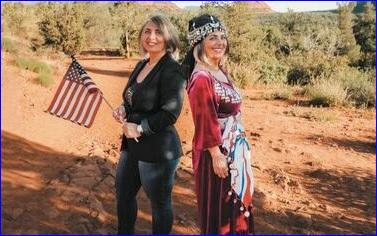 (AINA) -- Dr. Sophia Isaac is a scholar, educator, and cultural advocate whose own life reflects the very journey she studies. Born in Urmia, Iran, and brought to the United States as a child before the 1979 Iranian Revolution, she grew up navigating the space between two identities--Assyrian heritage and American life.
(AINA) -- Dr. Sophia Isaac is a scholar, educator, and cultural advocate whose own life reflects the very journey she studies. Born in Urmia, Iran, and brought to the United States as a child before the 1979 Iranian Revolution, she grew up navigating the space between two identities--Assyrian heritage and American life.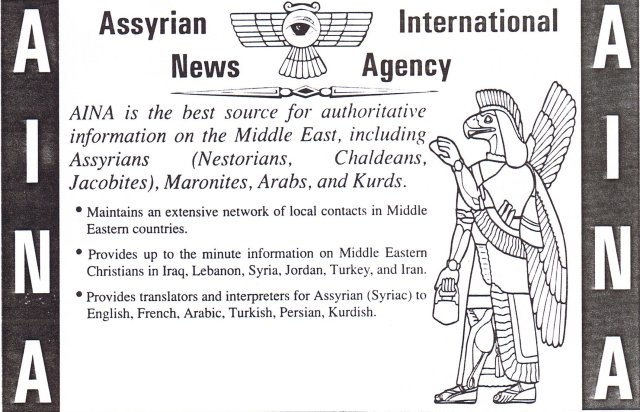 (AINA) -- For three decades the Assyrian International News Agency (AINA) has served as one of the most influential and authoritative voices documenting the life, heritage, and challenges of Assyrians and their Syriac-speaking Churches, both in the homeland and the diaspora. AINA is a privately funded, independent news agency founded by Peter Pnuel BetBasoo and Firas Jatou in 1995.
(AINA) -- For three decades the Assyrian International News Agency (AINA) has served as one of the most influential and authoritative voices documenting the life, heritage, and challenges of Assyrians and their Syriac-speaking Churches, both in the homeland and the diaspora. AINA is a privately funded, independent news agency founded by Peter Pnuel BetBasoo and Firas Jatou in 1995. (AINA) -- The Assyrian Arts Institute (AAI) is an organization founded by Nora Betyousef Lacey in 2017 and claims to support Assyrian arts. AAI has sponsored a few events since its founding, including an Assyrian women's choir.
(AINA) -- The Assyrian Arts Institute (AAI) is an organization founded by Nora Betyousef Lacey in 2017 and claims to support Assyrian arts. AAI has sponsored a few events since its founding, including an Assyrian women's choir.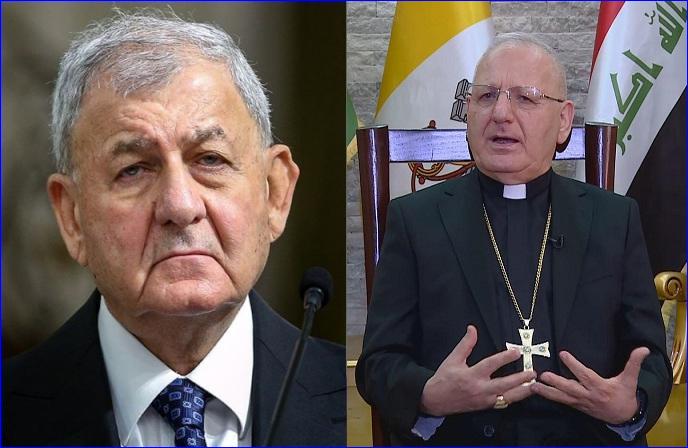 (AINA) -- On July 12 Iraqi president Abdul Latif Rashid repealed the decree recognizing the appointment of Cardinal Louis Raphael Sako as head of the Chaldean Catholic Church and which appointed him to the office of the waqf (وقف), the endowment which oversees all church property. The details of the events leading up to this action are exhaustively covered in this report by MEMRI.
(AINA) -- On July 12 Iraqi president Abdul Latif Rashid repealed the decree recognizing the appointment of Cardinal Louis Raphael Sako as head of the Chaldean Catholic Church and which appointed him to the office of the waqf (وقف), the endowment which oversees all church property. The details of the events leading up to this action are exhaustively covered in this report by MEMRI.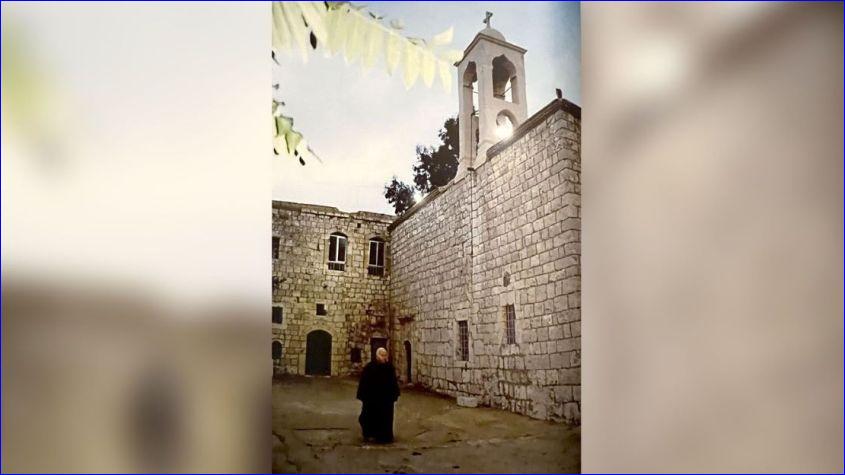 Three hundred and fifty years separate us from the last medieval Maronite epigraph, that of Our Lady of Ilige dated 1277 and the new inscription, dated 1628, at Mar Chalita of Ghosta, which marks the beginning of a renaissance that Lebanon was to experience under Ottoman rule.
Three hundred and fifty years separate us from the last medieval Maronite epigraph, that of Our Lady of Ilige dated 1277 and the new inscription, dated 1628, at Mar Chalita of Ghosta, which marks the beginning of a renaissance that Lebanon was to experience under Ottoman rule. Kochi, India -- As the Yuletide spirit fills the air, posters, cutouts and dolls of Santa Claus crop up everywhere, heralding the season of love and sharing. However, not many may know that Santa, the most popular symbol of Christmas, is inspired from and modelled after St Nicholas, a fourth-century bishop from Myra in ancient Turkey known for his generosity and secret gift-giving.
Kochi, India -- As the Yuletide spirit fills the air, posters, cutouts and dolls of Santa Claus crop up everywhere, heralding the season of love and sharing. However, not many may know that Santa, the most popular symbol of Christmas, is inspired from and modelled after St Nicholas, a fourth-century bishop from Myra in ancient Turkey known for his generosity and secret gift-giving.